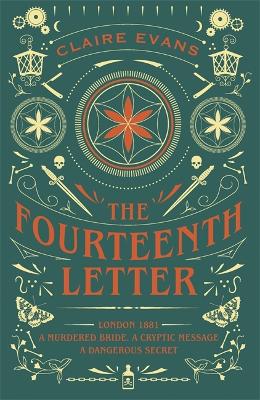Reviewed by pamela on
The Fourteenth Letter opens with a grisly murder. What follows is an historical mystery with a classical twist, blending old world British Gothic with new world American ingenuity. It was a book about madness, privilege and eugenics, and while it didn’t keep me guessing through the whole reading experience, it definitely swept me along for the ride.
I was impressed with Evans’ characterisation. Her characters were deeply flawed, mysterious, but personable. Their experiences created a sense of real personal growth. The William Lamb of the end of the novel was virtually unrecognisable from the character we’d met at the beginning, but his growth and development were so natural that it really gave his character depth. Savannah Shelton, the American gunslinger as well, was introduced as a rough and hardened criminal. Even she proved to have real depth, while Evans’ masterfully omitted the details of her erstwhile crimes, leaving the reader to judge the character on her personality and deeds through the novel rather than her sordid past. The remaining heroes were appropriately heroic, with the generic good-guy police constable who served to move the plot at an even pace, and the villains were appropriately dark and menacing.
The pace, plotting and characterisation, however, were belied by The Fourteenth Letter’s title and branding. The cover is more evocative of a feminine gothic family saga/romance. There was nothing that screamed historical murder mystery. The titular ‘Fourteenth Letter’ as well, was introduced far too late in the plot for it to have any real impact or meaning. This was the book’s biggest letdown. The big reveal was hardly a reveal at all, as I hadn’t even known in was an option up until that point.
All in all The Fourteenth Letter was a strong entry into the historical crime genre. It was a fun read that was equal parts cliché and original that was just really, really enjoyable.
Read this review and more at I Blame Wizards.
Reading updates
- Started reading
- 29 March, 2017: Finished reading
- 29 March, 2017: Reviewed
